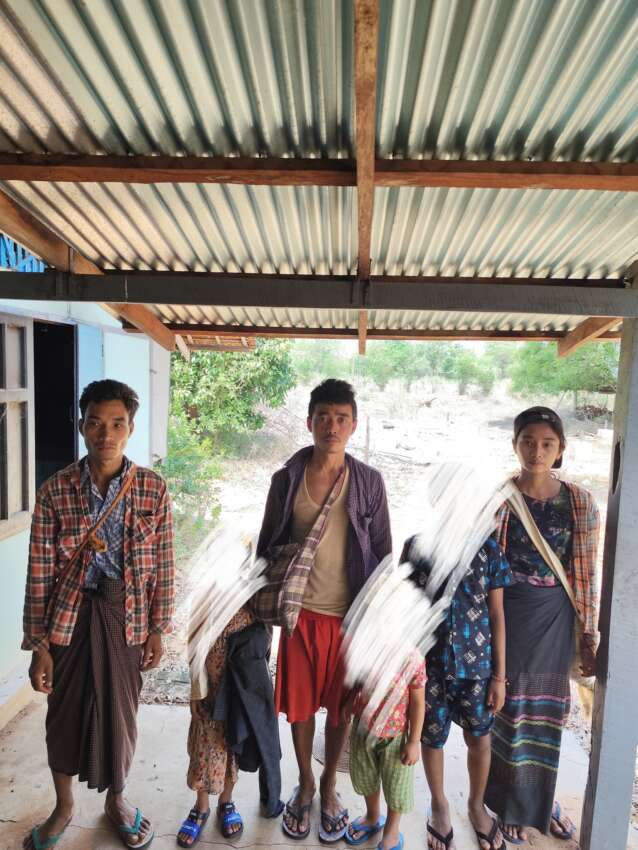
Three Pyu Saw Htee members from Kan Ni village in Myaing Township, Magway Region, have defected with their families and exposed the systematic sexual abuse of young women by their former leader. The defectors, who surrendered on May 7, revealed that the Pyu Saw Htee leader had been using weapons to threaten and sexually assault young women in the village, forcing them to become his wives. The group of defectors included two Pyu Saw Htee members in their thirties, one in their twenties, and three children. They contacted the local defense force expressing their desire to surrender after fleeing from Kan Ni Pyu village.
According to the testimonies of those who surrendered, the Pyu Saw Htee leader had been systematically abusing his power, using weapons to intimidate young women in the village and forcing them into sexual relationships. Some of these victims are now pregnant, with these abuses reportedly having started since the previous year. The situation at the Kan Ni Pyu Saw Htee camp has become increasingly dire, with People’s Defense Forces maintaining a blockade that has resulted in food shortages. The oppressive conditions and abuse by the military-affiliated Pyu Saw Htee have led to frequent defections from their ranks. The defectors’ accounts provide crucial evidence of the human rights violations being perpetrated by military council-affiliated groups against local civilians.
This incident represents another example of the human rights violations being committed by military council-affiliated groups against local populations. The testimonies of the defectors exposing the Pyu Saw Htee leader’s crimes demonstrate the escalating pattern of violence and human rights abuses by military council-affiliated forces. Local civilians continue to live in fear for their safety and rights, with women and girls being particularly vulnerable to such abuses. The situation highlights the ongoing crisis in Myanmar, where military-affiliated groups continue to operate with impunity, committing serious crimes against civilian populations, particularly in rural areas where oversight and protection mechanisms are limited.



